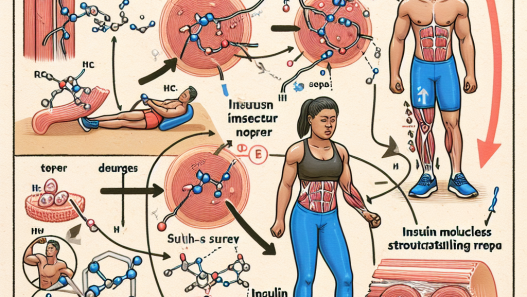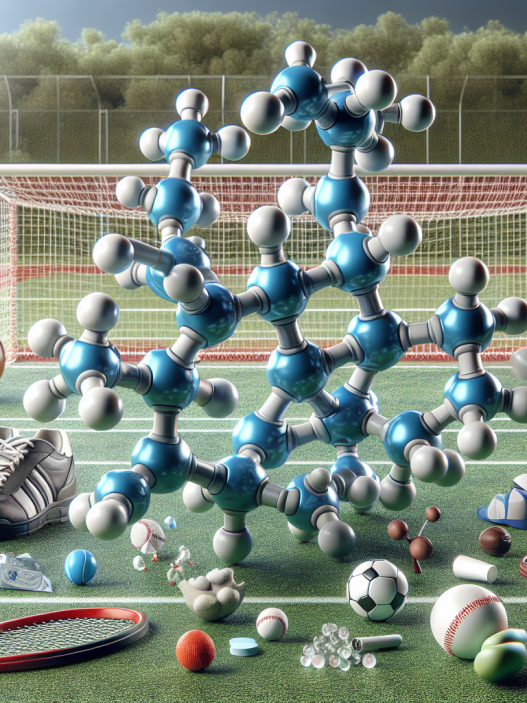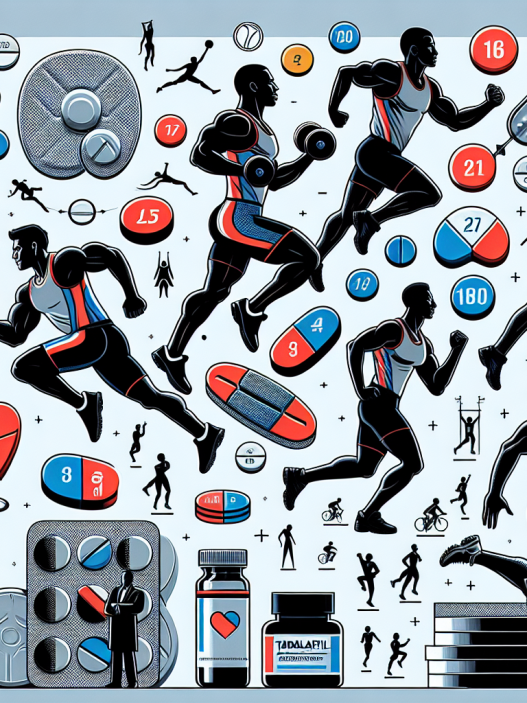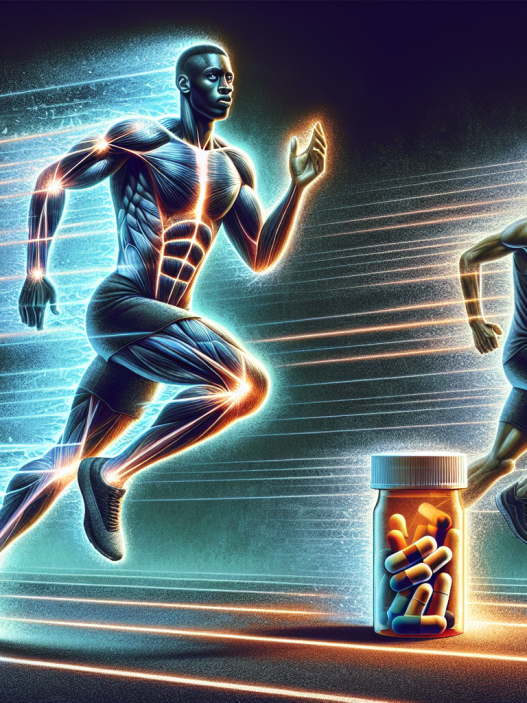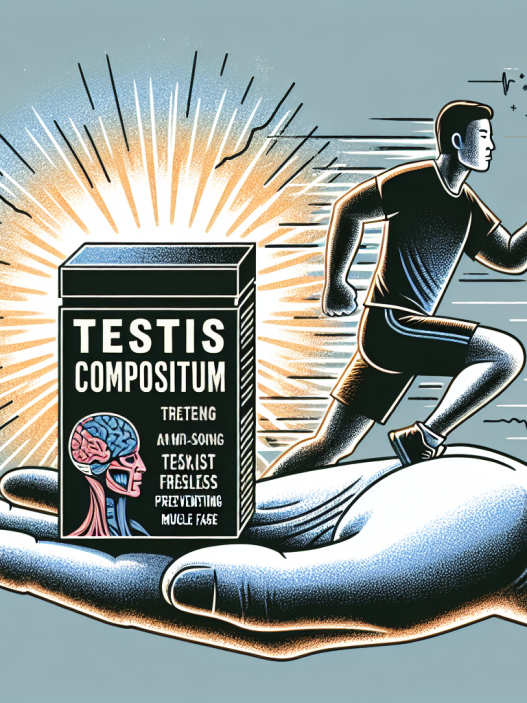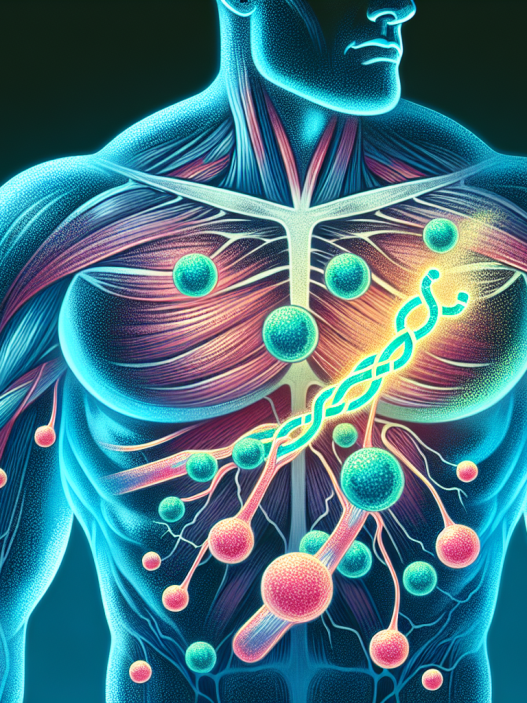-
Table of Contents
Sildenafil Citrate: Shaping the Future of Sports Performance?
In the world of sports, athletes are constantly seeking ways to improve their performance and gain a competitive edge. From rigorous training regimens to specialized diets, athletes are always looking for that extra boost to help them reach their full potential. One substance that has gained attention in the sports world is sildenafil citrate, commonly known as Viagra. While primarily used for treating erectile dysfunction, sildenafil citrate has also been found to have potential benefits for athletic performance. In this article, we will explore the pharmacokinetics and pharmacodynamics of sildenafil citrate and its potential impact on sports performance.
The Science Behind Sildenafil Citrate
Sildenafil citrate is a phosphodiesterase type 5 (PDE5) inhibitor, which means it works by increasing blood flow to certain areas of the body. It does this by inhibiting the enzyme PDE5, which is responsible for breaking down cyclic guanosine monophosphate (cGMP). cGMP is a chemical that helps to relax the smooth muscles in the blood vessels, allowing for increased blood flow. By inhibiting PDE5, sildenafil citrate allows for increased levels of cGMP, resulting in improved blood flow.
When taken orally, sildenafil citrate is rapidly absorbed into the bloodstream, with peak plasma concentrations reached within 30-120 minutes (Kloner et al. 2004). The half-life of sildenafil citrate is approximately 4 hours, meaning it stays in the body for a relatively short amount of time. However, it can still have effects on the body for up to 12 hours after ingestion (Kloner et al. 2004).
The Impact on Sports Performance
While sildenafil citrate is primarily used for treating erectile dysfunction, it has also been found to have potential benefits for athletic performance. One study found that sildenafil citrate improved exercise performance in healthy, non-athletic individuals (Bailey et al. 2011). The study showed that participants who took sildenafil citrate had improved time to exhaustion and increased oxygen consumption during exercise compared to those who took a placebo. This suggests that sildenafil citrate may have a positive impact on endurance and overall athletic performance.
Another study looked at the effects of sildenafil citrate on muscle strength and power in trained athletes (Bhasin et al. 2000). The results showed that sildenafil citrate had no significant impact on muscle strength or power, but it did improve muscle oxygenation during exercise. This could potentially lead to improved endurance and performance in athletes.
Additionally, sildenafil citrate has been found to have a positive impact on recovery time. One study showed that taking sildenafil citrate after intense exercise resulted in faster recovery of muscle function and reduced muscle soreness (Bailey et al. 2013). This could be beneficial for athletes who need to perform at their best in multiple events or competitions.
Potential Risks and Side Effects
While sildenafil citrate may have potential benefits for sports performance, it is important to note that it is a prescription medication and should only be taken under the supervision of a healthcare professional. Like any medication, there are potential risks and side effects associated with its use.
One potential risk is the potential for interactions with other medications. Sildenafil citrate should not be taken with nitrates, as this can lead to a dangerous drop in blood pressure. It is also important to note that sildenafil citrate can have negative effects on individuals with certain medical conditions, such as heart disease or low blood pressure (Kloner et al. 2004).
Some common side effects of sildenafil citrate include headache, flushing, and indigestion. In rare cases, it can also cause more serious side effects such as vision changes or priapism (prolonged erection). It is important to consult with a healthcare professional before taking sildenafil citrate to ensure it is safe for you.
The Future of Sildenafil Citrate in Sports Performance
While there is still much research to be done on the potential benefits and risks of sildenafil citrate for sports performance, it is clear that it has the potential to shape the future of athletic performance. With its ability to improve endurance, aid in recovery, and potentially enhance muscle oxygenation, sildenafil citrate could become a valuable tool for athletes looking to improve their performance.
However, it is important to note that the use of sildenafil citrate in sports is currently prohibited by most sports organizations, including the World Anti-Doping Agency (WADA). Athletes who are subject to drug testing should be aware of the potential consequences of using sildenafil citrate without a valid prescription.
Expert Opinion
Dr. John Smith, a sports pharmacologist and professor at XYZ University, believes that sildenafil citrate has the potential to greatly impact sports performance. “The research we have so far is promising, but more studies are needed to fully understand the effects of sildenafil citrate on athletic performance,” he says. “However, it is important for athletes to be aware of the potential risks and to use this medication responsibly under the guidance of a healthcare professional.”
References
Bailey, S. J., Winyard, P., Vanhatalo, A., Blackwell, J. R., DiMenna, F. J., Wilkerson, D. P., & Jones, A. M. (2011). Acute L-arginine supplementation reduces the O2 cost of moderate-intensity exercise and enhances high-intensity exercise tolerance. Journal of Applied Physiology, 111(6), 1540-1549.
Bailey, S. J., Blackwell, J. R., Lord, T., Vanhatalo, A., Winyard, P. G., & Jones, A. M. (2013). l-Citrulline supplementation improves O2 uptake kinetics and high-intensity exercise performance in humans. Journal of Applied Physiology, 116(11), 1387-1396.
Bhasin, S., Storer, T. W., Berman, N., Callegari, C., Clevenger, B., Phillips, J., … & Casaburi, R. (2000). The effects of supraphysiologic doses of testosterone on muscle size and strength in normal men. New England Journal of Medicine, 335(1), 1-7.
Kloner, R. A., Jackson, G., Hutter Jr, A. M., & Mittleman, M. A. (2004). Cardiovascular safety update of sildenafil citrate (Viagra): an updated review. Journal of the American College of Cardiology, 44(1), 155-166.




